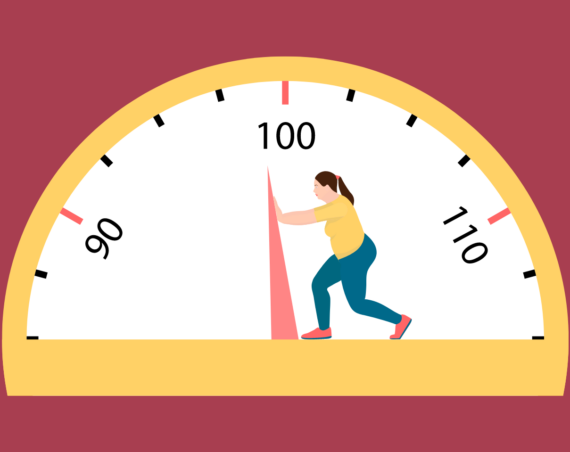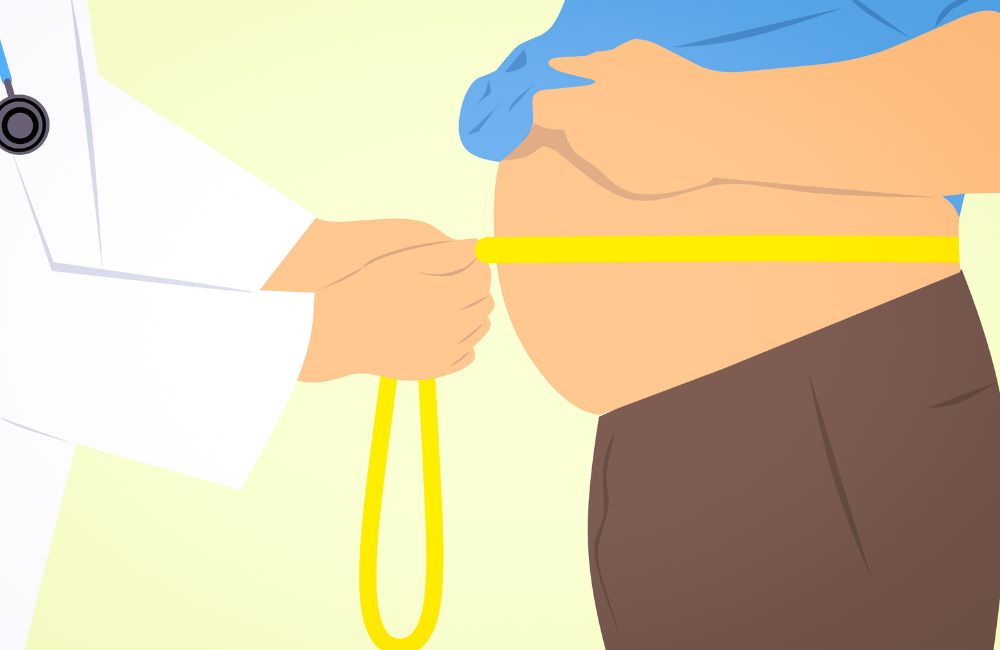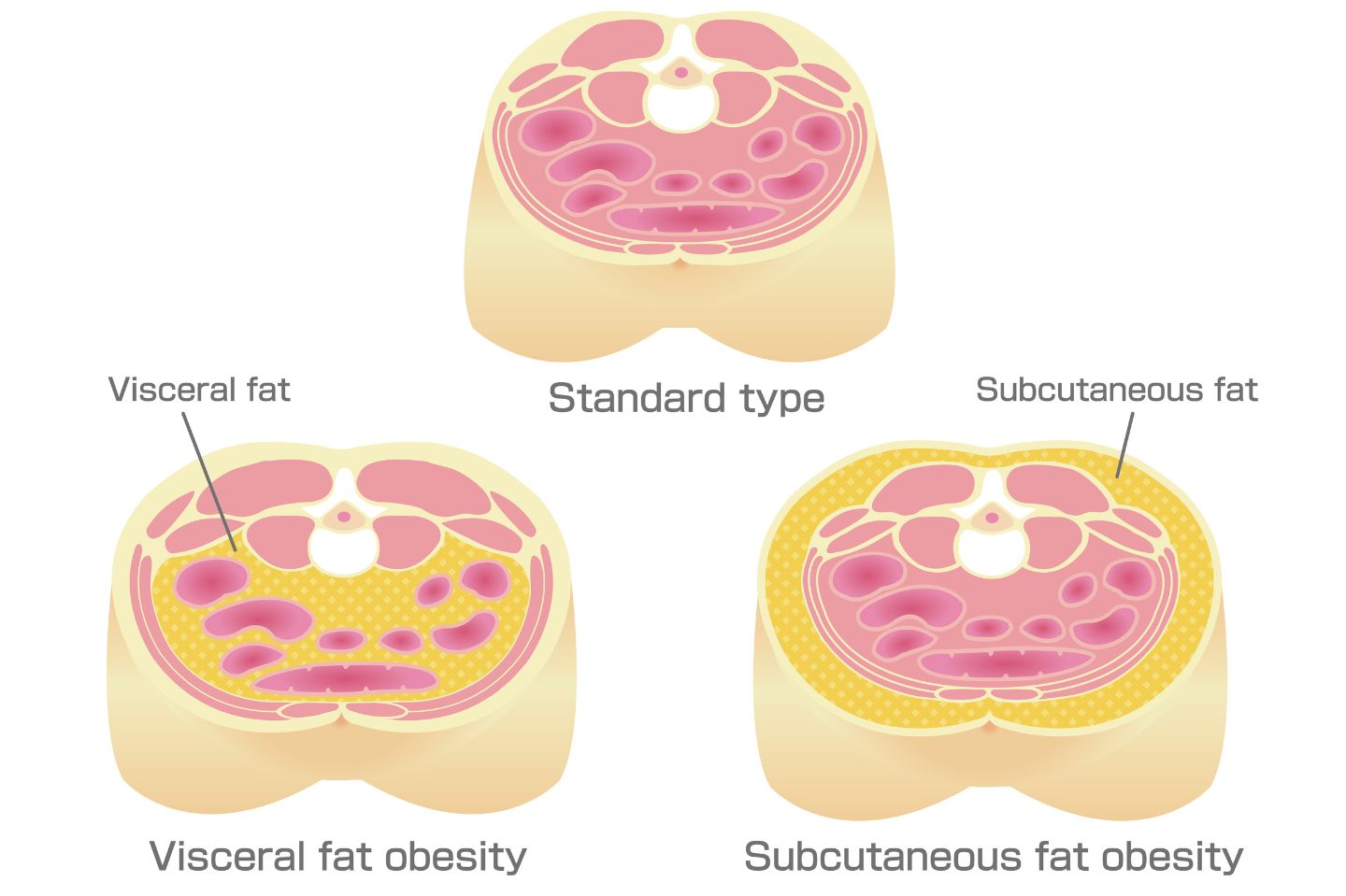
Belly fat isn’t merely a cosmetic concern, snugly fitting your jeans; it poses a significant threat to your health.
Visceral fat, in particular, is a type of belly fat that lurks unseen but carries substantial health risks.
Nestled deep within the abdomen, it envelops vital organs and releases toxins linked to serious conditions such as certain cancers, stroke, and type 2 diabetes (1, 2, 3, 4, 5, 6, 7).
While shedding visceral fat from the deep belly can be challenging, it’s certainly achievable. In this article, we’ll explore the dangers of visceral fat and provide evidence-based strategies to help you tackle and reduce this hidden health risk.”
This version maintains the original message while refining the wording for clarity and flow.
Here are 3 proven and effective tips to reduce visceral fat, backed by scientific studies.
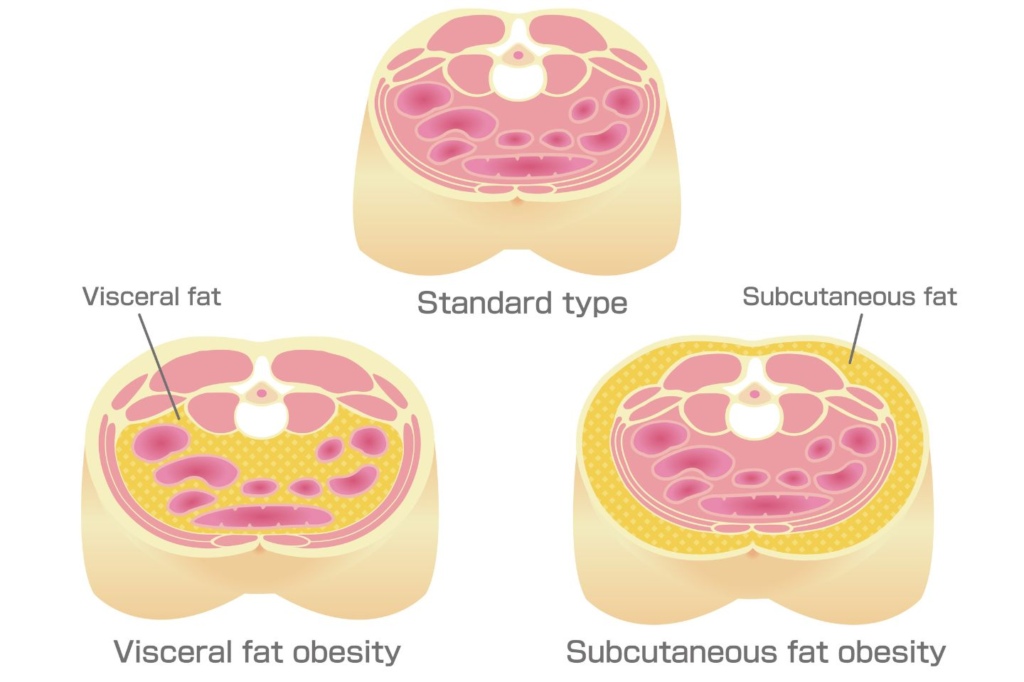
What Is Visceral Fat?
Located deep within the abdomen, visceral fat surrounds vital organs such as the stomach, liver, and intestines, distinguishing it from subcutaneous fat, which lies just beneath the skin and is less harmful.
Visceral fat, also known as “deep fat,” is particularly concerning because it is pro-inflammatory and situated near crucial organs, making it more dangerous than subcutaneous fat. While it’s difficult to visually discern between the two types of belly fat, excessive visceral fat can be diagnosed using a CT scan or MRI.
Determining your risk of excessive visceral fat involves calculating your waist-to-hip ratio. For women, a ratio above 0.85, and for men, a ratio of 0.90 or higher indicates heightened risk (8).
The dangers of belly fat and visceral fat extend beyond aesthetics. Chronic inflammation fueled by visceral fat significantly increases the risk of various conditions, including:
- Type 2 Diabetes
- Insulin resistance
- Stroke
- Heart Disease
- Alzheimer’s Disease
- Dementia
- Mood disorders such as depression and anxiety
- Certain types of cancers
- Decreased immune function
Excessive visceral fat adversely impacts nearly every organ in the body, including the liver, heart, pancreas, stomach, brain, and immune system.
Abdominal Fat Accumulation and Its Health Impacts
Often referred to as our ‘second brain,’ the stomach plays a crucial role in signaling to our brain and influencing our mood. When our gastrointestinal system isn’t functioning optimally, it can affect our mental well-being.
Research has linked abdominal fat accumulation to an increased risk of mood disorders, possibly due to the gut-brain connection or heightened inflammation associated with excessive visceral fat (1).
Moreover, pro-inflammatory visceral fat may impair brain function and elevate the risk of Alzheimer’s disease and dementia (7). In one study published in Brain Science, participants with high levels of visceral fat exhibited decreased brain function compared to those with lower levels.
Similarly, research examining middle-aged adults found that higher visceral fat levels were associated with lower total brain volume on MRI scans (6).
Visceral fat’s impact isn’t limited to mental health; it may also affect our immune system, as approximately 70% of our immune system resides in our gastrointestinal system. Thus, excess visceral fat surrounding the GI tract could compromise immune function (9).
As we age, subcutaneous fat decreases while visceral fat increases, along with the risk of chronic diseases such as type 2 diabetes, Alzheimer’s disease, dementia, and cancer. Therefore, it’s crucial to reduce visceral fat, especially after age 50.
Fortunately, research suggests several strategies to effectively decrease visceral fat. Below, we outline three tricks to lose visceral fat after 50.
Manage Stress
The cortisol hormone is released when we are under stress. This is a normal process during stress; however, chronic stress can lead to chronic excessive cortisol. Chronically elevated cortisol levels promote visceral fat accumulation (10).
Because cortisol can cause an increase in visceral fat, managing stress levels is crucial. Stress is an inevitable part of life, but we can learn ways to cope with stress; thus, decreasing cortisol levels.
Ways to Decrease Stress Levels

Exercise on Most Days
Exercise releases endorphins, i.e., happy hormones. Nothing makes you feel refreshed and stress-free like exercise.
Exercise can also help reduce general body fat and visceral fat by increasing the number of calories you burn.
Try to get in exercise every day to help manage stress and decrease belly fat. Include both strength training and cardio activities for best results.
Self-Care and Taking Time to Relax
If we don’t take time to relax and unwind, we will soon find ourselves feeling overwhelmed and burned out.
Schedule time every week to do relaxing activities you enjoy. Ways to relax might include taking a walk or jogging through nature, reading a light-hearted book, sitting outside in the sun (wearing sunscreen), or spending time with friends.
Consume Calming Foods and Drinks.
Did you know certain foods can have a calming effect? Green tea and dark chocolate have been shown to decrease feelings of stress (11, 12).
Frequently eating foods rich in antioxidants, omega-3s, and vitamin D have also been linked to a decreased risk of developing anxiety and depression (11, 13).
An Anti-anxiety diet is a diet high in vegetables, fruits, salmon, tuna, nuts, and seeds.
Get Enough Sleep
Proper sleep is also important when it comes to reducing belly fat. Inadequate sleep increases cortisol levels and increases your risk of a multitude of conditions (14).
One study showed that individuals who slept fewer hours were more likely to be overweight or obese. The same study noted that sleep quality increased weight loss success by 33% (15).
To promote better sleep, put away your phone before bed and drink a calming drink like chamomile tea. Tart cherry juice contains natural melatonin and has been shown to help with sleep as well (16).
Decrease Sugar Intake
High intakes of sugar, fructose, fried foods, and ultra-processed foods can increase visceral fat accumulation. Sugar appears especially harmful.
In one study, researchers found that individuals with a higher intake of sugar-sweetened beverages had 7% more visceral fat than individuals who drank low amounts of sugar-sweetened beverages (17)
Another systemic review of 14 studies found a similar link between high sugar intake and visceral fat (18).
High sugar intakes have also been linked to increased stress and cortisol levels. This can further increase your risk of accumulating excessive fat in the abdomen (19).
One simple way to reduce sugar intake is to limit the consumption of sugar-containing beverages. You can also limit the consumption of sugary desserts and ultra-processed pastries.
When purchasing condiments, sauces, and packaged foods, look for “no sugar added” listed on the label. Consider also limiting intakes of fried foods and ultra-processed foods to reduce visceral fat accumulation.
Eat Probiotics and Prebiotics to Promote Gut Health
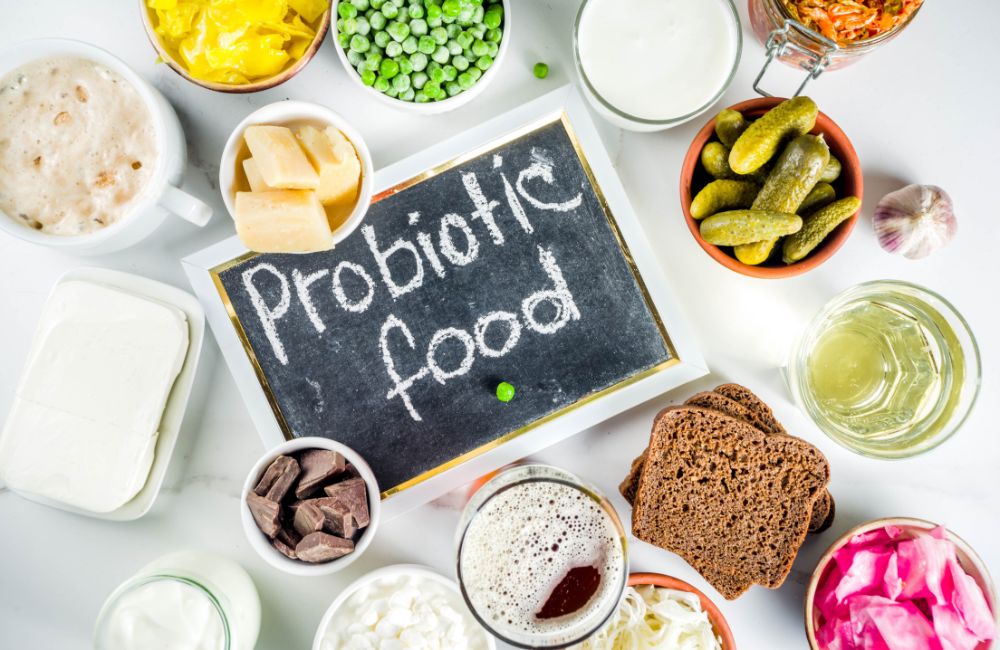
Although more human trials and randomized placebo-controlled trials are needed, evidence suggests that consuming certain probiotics may help reduce visceral fat and overall body fat.
According to a review in Nutrients, the probiotic Lactobacillus gasseri appears to decrease abdominal fat and general body weight.
Lactobacillus Plantarum, another probiotic, appears to decrease waist circumference and general body weight, and body fat (20).
Lactobacillus Plantarum and Lactobacillus gasseri are found in fermented foods like kefir, miso, kimchi, and sauerkraut.
Prebiotics also help our gut, by providing food for the probiotics. Prebiotics include fiber-rich foods like bananas, apples, onions, asparagus, oats, and flaxseeds.
The Key Takeaway
Visceral fat, which accumulates around the internal organs in the abdomen, significantly increases the risk of numerous chronic diseases and medical conditions.
As we age, visceral fat tends to increase, but adopting certain strategies and habits can help mitigate its effects.
To combat visceral and belly fat accumulation, it’s essential to address stress management. Engaging in daily exercise, prioritizing relaxation, consuming anti-anxiety and calming foods, and ensuring adequate sleep are effective ways to manage stress levels.
Regular exercise not only burns calories but also targets belly fat. Anti-anxiety and calming foods such as vegetables, fruits, salmon, tuna, nuts, seeds, green tea, and dark chocolate can also aid in reducing visceral fat.
Additionally, incorporating probiotics and prebiotic foods into your diet while limiting sugar intake can further contribute to visceral and belly fat reduction

